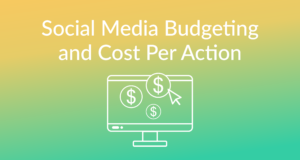Social analytics would refer to the field of measuring, monitoring, interpreting, and analyzing social media data in real time. The purpose of social media analytics is to study online data so an individual or perhaps, a company can communicate in a more effective manner through the different social media channels.
Basically, the ability to make more sense of social media conversations and data stream on several social media channels like Twitter, YouTube, and Facebook plays an important role in business. Efficient social analytics can actually help businesses communicate as well as interact more efficiently with their target market, business partners, as well as employees.
Qualitative Analysis Versus Quantitative Analysis
The qualitative analysis of the social media is regarded as the aspect that matters most. However, the quantitative analysis is actually catching up and gaining more attention due to the birth of new social media metrics tools.
Basically, the increasing popularity of social media these days created a virtual explosion of data about the people’s online behavior. This event has prompted various software vendors to create more tools to help businesses measure several data points. The main goal, however, is to make sense of these online data.
Collecting Social Analytics Data
The initial step in social analytics involves figuring out how to effectively monitor social media events through collecting data, which are generated from the social media channels. The data that should be collected will depend on the objectives that any business or perhaps company is seeking. There are some companies that make use of Los Angeles social media marketing to market their services and products while there are other businesses that utilize social media to serve their existing clients. On the other hand, there are also other businesses that aim to monitor their competitors as well as the trends of the industry.
Social Analytics Tools Classified by Function
There are a lot of social analytics tools that have been created to meet the increasing demands of social media analytics. Such tools are often classified basing on their function. These are the classification of the social analytics’ tools:
• Social Media Monitoring. This type of tool will check on the conversations in social media and will tend to look for those keywords that a business is interested in. Such tools are often called “listening” tools. Most businesses utilize these tools to track and determine how often their services, products, or simply their company name is mentioned. These tools will also help track the company’s competitors and the trends in a specific industry or field.
• Social Media Measurement. The tools under this classification may also monitor but have the added capability of refining as well as measuring the data based on the specified parameters or filters.
• Social Engagement. These tools will help automate any communication across the different social media platforms. The main function of these tools is communication. If a social media user posts something on one channel, the other channel becomes updated as well.
 Social Media Data Insights & Resources for Social Media
Social Media Data Insights & Resources for Social Media




